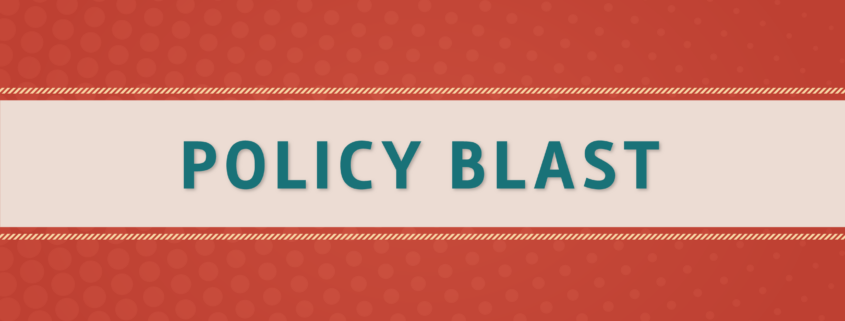Memo: No Surprises Act and the Impact on Urban Indian Organizations
NCUIH prepared the following memo for Urban Indian Organizations with respect to the No Surprises Act:
Background on the No Surprises Act
- The No Surprises Act was passed as part of the Consolidated Appropriations Act of 2021. The No Surprises Act went into effect January 1, 2022. The Act includes provisions that take effect in 2022 for medical providers.
- The bill focused on banning surprise billing and is focused on high-cost services and providers.
- Surprise billing happens when a patient with health insurance receives care from an out-of-network provider or an out-of-network facility, even unknowingly, and their plan does not cover the entire out-of-network cost. The provider or facility could then bill the patient for the difference between the billed charge and the amount their health plan covered. The No Surprises Act bans this practice.
How does the No Surprises Act affect UIOs?
- Patients enrolled in federal programs such as, Medicare, Medicaid, Indian Health Service (IHS), Veterans Affairs Health Care, or TRICARE, already had protections against surprise billing. As such, most of the provisions in the No Surprises Act do not apply to UIOs. But on September 30, 2021, HHS released an Interim Final Rule (IFR) with an important provision that does impact UIOs – the Good Faith Estimate (GFE).
What is the Good Faith Estimate?
- The GFE is documentation that includes charge info for services and items provided by the provider.
- A GFE is provided to patients that are uninsured or self-pay, that make an appointment more than three days in advance, or specifically request a GFE.
- This documentation is provided when the patient makes their appointment, and has a requirement of listing a diagnostic code, essentially requiring administrative staff to diagnose patients who have yet to be seen.
- For services that are recurring a single GFE can be issued for up to 12 months.
How does the GFE apply to UIOs?
- The rule does not apply to people with coverage through programs such as Medicare, Medicaid, Indian Health Services, Veterans Affairs Health Care, or TRICARE. These programs already prohibit balance billing.
- AI/AN patients are considered insured when they receive care at an Indian Health Service facility, tribal health programs (also known as tribal 638 programs or tribal health clinics), or urban Indian organizations.
- As such, UIOs do not need to provide a GFE for AI/AN patients. However, if a UIO provides care for non-AI/AN patients, those patients would be eligible for GFEs if they meet the other requirements (e.g., uninsured.)
Waivers and Exemptions
- There is no development of a waiver program in the legislative text of the Act.
- However, the National Association of Community Health Centers (NACHC) is advocating for HRSA FQHCs and “look-alikes” to be exempt from the Good-Faith Estimate (GFE) provision.
- NACHC’s argument centers around the fact that the GFE would be redundant with the requirements (sliding scale fee) of section 330 of the Public Health Service Act (PHSA) and undermine its protections.
- NACHC’s request is that Agencies use their discretion under the No Surprise Act in defining the terms “facility” and “provider” for purposes of the good faith estimate requirement in Section 112 and omit community health centers and clinics.
Does GFE apply to UIOs referring patients to other providers for services?
- The GFE only applies to the provider that is collecting the check. If a patient is referred out for additional services, then the UIO only has to provide a GFE for the services the UIO is being paid for, and the referred to provider will have to provide a GFE for their services provided. However, services where the UIO is dependent on them to provide care, like labs, will need to be included in a GFE.
Conclusion
- The No Surprises Act went into effect January 1, 2022.
- This includes phase one of the GFE implementation which requires a GFE for charge info for services and items provided.
- This requires that UIOs provide a GFE to non-AI/AN patients who are uninsured or self-pay and make their appointment more than three days in advance.
- On February 3, 2021, on an All Tribal and UIO leaders Call, Capt. John Rael said IHS continues to work with CMS on the No Surprises Act and will provide UIOs with additional assistance on the Act.
- NCUIH is advocating with a coalition of partners to have UIOs waived from the GFE provision.
For additional information, please contact Jeremy Grabiner, Policy Analyst, JGrabiner@NCUIH.org or email Policy@NCUIH.org.





Leave a Reply
Want to join the discussion?Feel free to contribute!